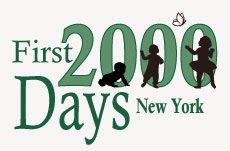Daseta and I entered the Fueling Good Project competition for a
chance to win $5,000 to continue the work we we are doing with parents
of infants/toddlers. Please vote for us we are listed as Beulah Wesleyan Methodist Church
(our home base). The first round in Sept we didn't make it and we
recently received an email stating we were selected in this round.
The next step to winning a $5,000 CITGO Gift Card is here. Visit www.fuelinggood.com/participate to vote once a day. Please note, you must create a voter profile in order to vote.
Votes are an important factor in determining which 501(c)(3) organizations, like yours, will be awarded $5,000 in CITGO Gift Cards. Remember, every vote counts.
Please spread the word. Thank you
www.SabreeEducationServices.com
Follow us on Twitter @KinderSuccess * Join Us on Facebook KindergartenSuccess * View us on Instagram KindergartenSuccess
"The brain is like a circuit breaker, in order for your infant/toddler to learn you must provide the tools to connect the wires" -Daseta Gray
The next step to winning a $5,000 CITGO Gift Card is here. Visit www.fuelinggood.com/participate to vote once a day. Please note, you must create a voter profile in order to vote.
Votes are an important factor in determining which 501(c)(3) organizations, like yours, will be awarded $5,000 in CITGO Gift Cards. Remember, every vote counts.
Please spread the word. Thank you
www.SabreeEducationServices.com
Follow us on Twitter @KinderSuccess * Join Us on Facebook KindergartenSuccess * View us on Instagram KindergartenSuccess
"The brain is like a circuit breaker, in order for your infant/toddler to learn you must provide the tools to connect the wires" -Daseta Gray



